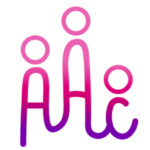The Communication Penny
This is an article by Laura, a Registered Nurse who is one of the regular panel members on our training courses.
The Communication Penny –

Until my Autism diagnosis, I considered myself to be good at communicating, even describing myself as an “excellent communicator” on job applications. I understood communication to mean almost exclusively spoken and written words, supplemented occasionally by non-verbal clues like body language and facial expression.
I understand now that this is not in fact the case and have learnt that communication is an infinitely complex concept. It turns out that non-verbal communication is not just added extra clues to supplement spoken and written language, it is a fundamental aspect of general human interaction.
Communication is by definition ‘a way to convey information’ and I had no idea that it might be more complicated than I was aware. I had after all, spent time learning about non-verbal communication and thought I had a pretty good understanding. Like I said, I even considered myself to be good at it.
Much to my surprise, it is generally accepted that the majority of human interpersonal communication is non-verbal. For example, using video call has been a real eye-opener -being able to see my own image during conversation made me suddenly very aware that my face says an awful lot without me realising!
I have generally always felt as though I don’t know what anyone means or wants from me, thinking everyone else was just as confused as I was. Navigating interpersonal relationships has always involved expending a great deal of time and energy as I try to decode conversation. Realising now that most people do not consider others a perpetual puzzle which requires constant cognitive decoding, was initially almost unbelievable. This realisation has been a real epiphany in terms of my self-awareness I now have an explanation for the constant, pervasive anxiety I experience around other people.
Probably the hardest thing for me to grasp about non-verbal communication is the concept of how other people are reading me. It might sound obvious to most people, but it only very recently dawned on me that the communication problems I encounter are not just about how I interpret other people, but how others interpret me. My facial expressions, body language, timing and honesty are all being constantly “read” and interpreted alongside my words. I always knew I was a bad liar, but thanks to uncompromising self reflection of video call I now know that’s because my facial expression and subconscious non-verbal communication gives everything away.
The years of frustration, funny looks and misunderstandings are only now slowly beginning to make some sense. Every time I catch myself recalling an uncomfortable exchange from my past, realising just how naive or backward I must have come across, the penny drops again.
Since being diagnosed as Autistic I have become aware that I don’t experience communication in the same way as most people. What I had not really anticipated was the scale in which this difference affects my everyday life. Unravelling the tangled mess of coping strategies and emotional turmoil is tough, and I know that it will never be a quick or easy process. But, discovering these crucial insights along the road to self-discovery, is a good start.

Thank you, Laura. This is an excellent insight into the exhausting and unrelenting processes that are a constant for a person with Autism.
From Laura’s mum.
Thank you, that was a great insight. I have worked on my expressions for many years as part of my camouflage without knowing I was autistic. I am still learning what are ‘autistic traits’ in my thinking and reading other autistic female’s experiences is invaluable. Again, thank you.